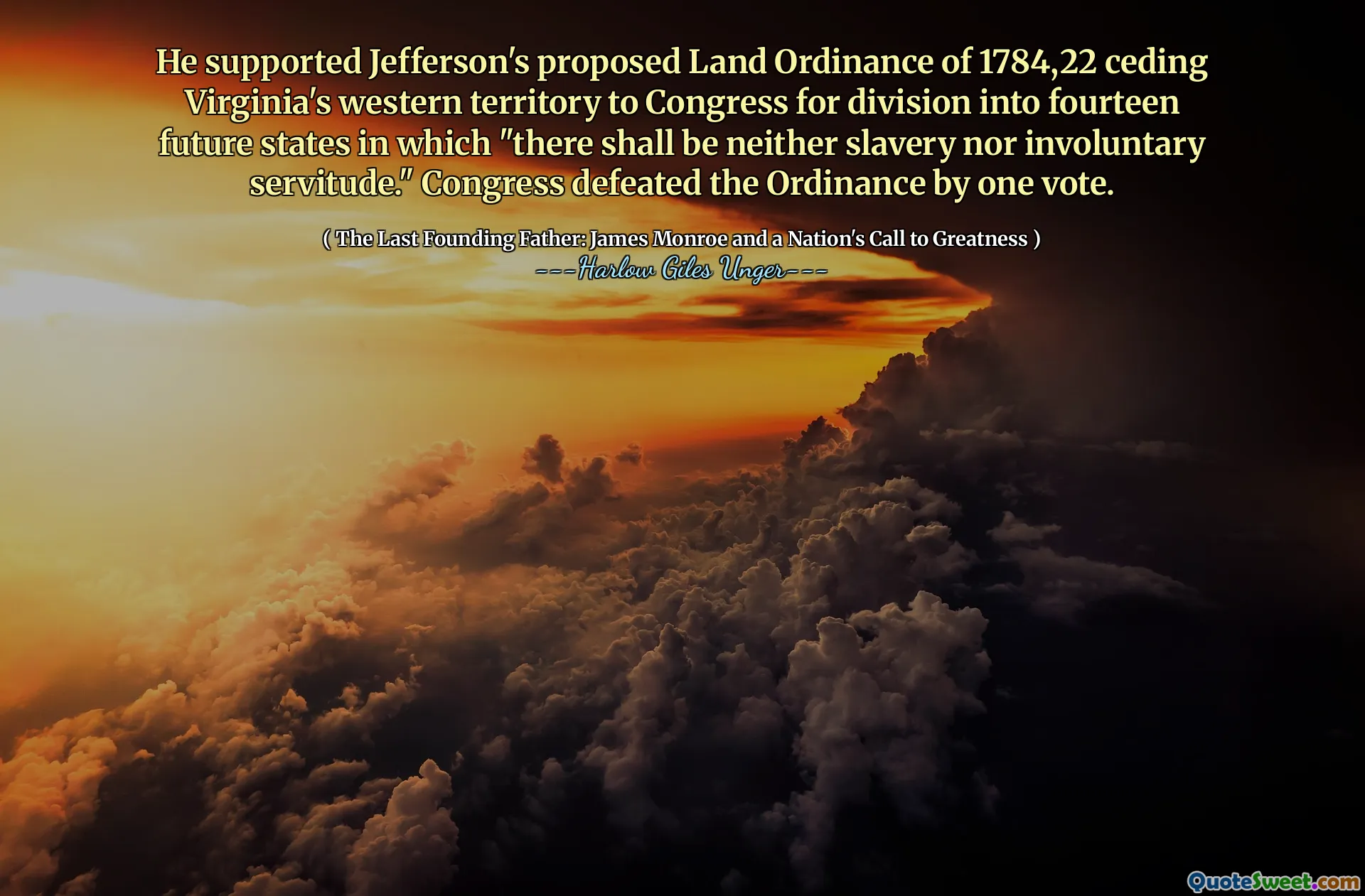
He supported Jefferson's proposed Land Ordinance of 1784,22 ceding Virginia's western territory to Congress for division into fourteen future states in which "there shall be neither slavery nor involuntary servitude." Congress defeated the Ordinance by one vote.
In "The Last Founding Father: James Monroe and a Nation's Call to Greatness," author Harlow Giles Unger discusses James Monroe's advocacy for the Land Ordinance of 1784, which was proposed by Thomas Jefferson. This ordinance aimed to transfer Virginia's western lands to Congress, with plans to create fourteen states that would be free of slavery and involuntary servitude. Monroe's support for this measure underscored his commitment to the principles of liberty and equality.
Despite Monroe's efforts, the ordinance was narrowly defeated in Congress by a single vote. This outcome not only reflected the contentious debates over slavery in early America but also highlighted the challenges faced by proponents of anti-slavery measures during that period. The ordinance's failure foreshadowed the deepening divisions over slavery that would later culminate in national conflict.











